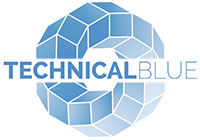Publié le jeudi 02 novembre 2023 dans la rubrique Bordeaux
Pesticide Toxicity in Gironde: Films, Symposium, and Demands for Change
"Secrets Toxiques": Films and Symposium to Raise Awareness on Pesticide Toxicity in Gironde A coalition of over 70 associations and unions, called "Secrets toxiques," continues its fight for stricter control over the toxicity of pesticides before their commercialization.
While Europe remains undecided on whether to halt or renew the use of glyphosate, the world's most widely used pesticide, this coalition has been campaigning to enforce European regulations on pesticides since December 2020.
These regulations demand that the absence of harmful effects on health or the environment be proven before granting authorization for pesticide use.
Secrets toxiques believes that genuine change can only occur when the public is fully informed about the serious shortcomings of the state.
For this reason, they have organized a "Tour de France" in 2023 and 2024 to present their work through films and publications.
From November 6th to 17th, the Gironde region will host a series of film screenings and debates in Salles, Laruscade, Blaye, Lesparre, and Cadillac.
These events aim to share tangible evidence that demonstrates the non-compliance of pesticide market authorizations with European Regulation 1107/2009.
Concluding the series, a scientific symposium will be held on November 17th, featuring doctors, researchers, and engineers.
Furthermore, the tour will provide an opportunity to present the report from the "Etats généraux des riverains" (General Assembly of Residents) organized by various associations on February 18th, 2023, in Saint-Christoly-de-Blaye.
The coalition's demands include the banning of folpel, a commonly used pesticide in Gironde suspected of disrupting the endocrine system and being carcinogenic.
They also call for restrictions on spiroxamine, a substance that affects fertility, and advocate for a radical change in vineyard cultivation practices by promoting organic viticulture and aiming for a significant reduction in pesticide use.
Additionally, the associations are demanding transparent information regarding the contents and effects of pesticides.
They believe that farmers who use these substances, consumers, and individuals living near agricultural areas should be fully aware of the potential risks.
They also propose the implementation of protective buffer zones, with a minimum distance of 100 meters, between pesticide-treated fields and residential areas.
These demands are supported by two studies conducted by the French National Institute of Health and Medical Research (Institut national de la santé et de la recherche médicale - Inserm) in 2013 and 2021, as well as a study by Générations Futures.
These studies highlight the links between pesticide use and cancerous diseases, shedding light on the presence of these toxic substances in the air.







